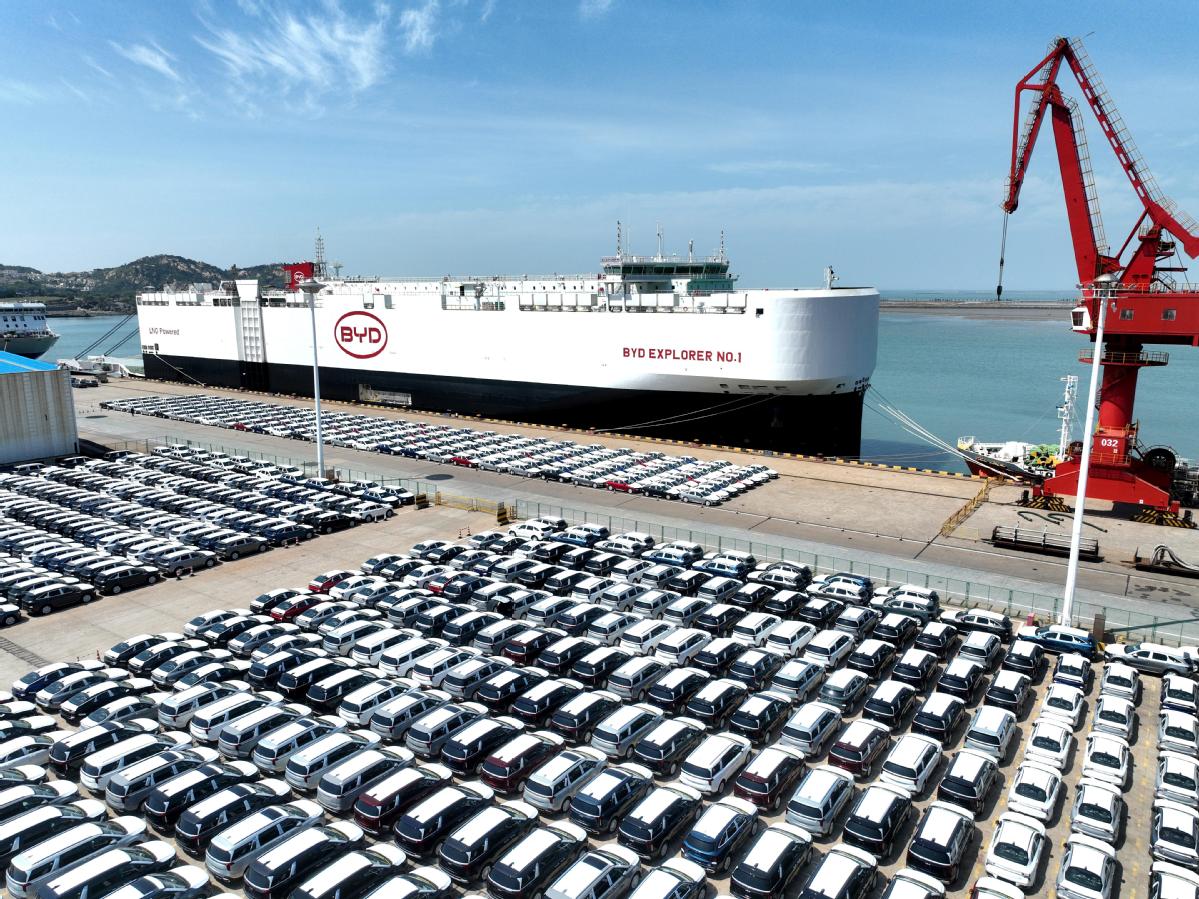
US Treasury Secretary Janet Yellen's recent statement on trade with China was overly broad and protectionist, trade experts said.
"The United States is doing what it can and using arguments that it can marshal … (to) keep Chinese goods out of its market," Sourabh Gupta, a senior fellow at the Institute for China-America Studies in Washington, told China Daily.
"And that is protectionist, purely."
READ MORE: Chinese spokesperson: EU anti-subsidy probe will boomerang
In remarks at the Economic Club of New York last Thursday, Yellen blamed China's "over-concentrated supply chain" for posing a threat to US jobs and recent investments aimed at building the US' green energy sector.
She also said China's pursuit of its trade policies "may interfere significantly with our efforts to build a healthy economic relationship".
Gupta said Yellen may be claiming that China's high production capacity, high savings rate and low consumption ratio are putting pressure on international markets.
"But what economists would also say reciprocally is that the US runs a huge budget deficit and … that it is overconsuming at its end," Gupta said.
The US doesn't employ or have a balanced budget, and therefore, there's excess consumption on its end, Gupta added.
Yellen has more than once said that China's electric vehicles and other green industries have "overcapacity" that threatens the global supply chain. China has countered that the US is essentially using the "overcapacity "narrative to "kneecap" other countries' strong industries, practice protectionism and "trample "on market principles and international trade rules in the name of "fair competition".
Gupta said most subsidies provided by the Chinese government on EVs are consumer subsidies, and "that is WTO legal".
It is "perfectly fine to subsidize "infrastructure such as charging stations because "the market would not do it on its own".
Gupta said government subsidies are not uncommon for companies.
"They didn't just spring up one day. Governments gave them subsidies — even things like the United States chip industry in the 1960s," he said.
"But now the Chinese government is letting that (EV) industry run mostly on market force lines. And so, China has nothing to hide in this regard."
Gupta described the US as "a completely protectionist and non-compliant client on trade issues", which, he said, was "the real opposition" to Yellen's assertion of macroeconomic imbalances hurting the US-China trade.
He said the US would prefer China to remain downstream of the value chain, but it is not for Washington to make that call.
WTO-compliant ways
"That is for China to make its own decisions, and for the market to make its own decisions," he said.
"China is moving far up the value-added ladder very quickly in sophisticated export goods. And the important thing that the US needs to do is try to come back into WTO-compliant ways in which it deals with China."
ALSO READ: Chinese commerce minister calls for 'real fair competition'
The day after Yellen's speech, the World Bank released its Global Economic Outlook, in which it raised China's GDP growth forecast from 4.5 percent to 4.8 percent this year.
Gary Hufbauer, a nonresident senior fellow at the Peterson Institute for International Economics in Washington, said Yellen's statement targeting China is "too broad" to "lead to a constructive outcome".
Hufbauer said the US has the right to criticize specific trade policies, but it "cannot dictate the shape of China's industrial development".


